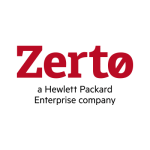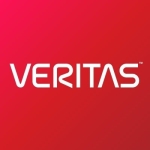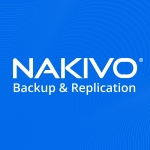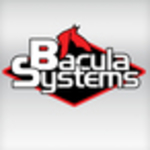Our clients use it for consolidated backup and mostly for guests on the VM.
The solution significantly improves a client's restoration times. They also do complete backups now. Some of the things clients used before couldn't really provide complete backups. In that sense, it's been great for organizations.
The solution actually does a lot. It's really powerful. The value of Spectrum Protect is it does everything. It does tape and it does disk. It's easy to migrate. You don't need any other software. It's basically an all-in-one solution, which is its most valuable aspect.
Their GUI has improved quite a bit. It's made the solution a lot simpler and less complex.
The solution has a Spectrum Protect Plus product, which is more for Windows-only VM. However, it doesn't really do tape. It requires IBM to do things to the Cloud, which adds costs. They're starting to integrate the products together. That said, right now, it's like two implementations, it's not one product.
We've tried to sell Protect Plus from time to time, however, then you need Protect if you want to do tape. It's kind of clunky. Once they integrate the products, it will be pretty powerful.
Spectrum Protect is still an industry-leading product across multiple operating systems. It still runs best on an AIX server and does remember Windows or Linux. The install base is more AIX as far as hosts because the AIX server is more powerful.
They should be able to integrate the products so that you don't have to do two system installs.
The solution should have a better way to deal with the system state files in Windows. They should do that better where it doesn't try to walk the file system and you have to use in image mode.
The experienced people still use the CLI. You shouldn't have to use a CLI to use this product.
They took some of the funding off of it for a while. Therefore, instead of being a market leader, they took their position for granted. Then some competitors developed new bells and whistles that they advertise, and due to that lag a few years ago, there are not the resources to explain the differences.
They're outsold. IBM is outsold because people do not understand the product and it had a reputation of being complex. That said, with the new GUIs and other improvements, it's really pretty easy. The problem is they've got to deal with their old reputation of being difficult and complex. Still the GUI could still be more robust.
I've been using the solution for 20 years now. It's been two decades.
The solution is extremely stable. There are no issues with bugs or glitches. It doesn't crash or fail. It's reliable.
We work with all sizes of businesses from Fortune 100 insurance companies to small colleges and universities. We have all sorts of customers.
The scaling potential of the solution is huge. This is an enterprise solution compared to some of the smaller options. It also scales down when you do less than 100 terabytes. It has very favorable pricing. It's competitive with other products.
Technical support is not as good as it could be. It's not as good as some of the competitors. IBM has put more resources into it recently. However, they had a stage about two years ago where they kind-of stopped spending as much money on Protect due to the fact that they had so many other IBM products.
Overall, I'd rate their technical services at seven out of ten. It's not too bad, however, it could be better. They are quite responsive. Now that IBM is more focused on improving the product it may improve as well.
I have some experience with Veeam as well. I really like it compared to Veeam. You don't have to have media servers. It's nice compared to Veeam that clients don't have to do a media server.
We've had customers who have used other solutions, however, they've been weak and not as scalable as IBM.
The initial setup is not complex. It's straightforward. It's easy.
The pricing is quite good and very competitive in the market.
I'm a reseller and a system architect. I'm not really a user. I'm a project manager and architect. However, we have people on our team that use and install it.
We're using the current version of the solution.
I'd advise other companies to not forget tape. With ransomware and everything else, it's hard. People forget tape is cheap. Tape gives you an air-gap, and, if you properly use it, you get a good hybrid solution.
Many people think it's disk only, and that's just for yesterday's restore, however, for a long-term solution, tape is so much more cost-effective.
I'd rate the solution eight out of ten. It's a full-feature product. It's hard to be perfect with full-featured products. There are compromises due to the fact that they do so much.
















Have you seen the SPFS solution?
SPFS is a filesystem for Spectrum Protect, making it possible to mount the storage pool data as a filesystem directly on the servers, and in that way protecting almost any data with Spectrum Protect.
www-356.ibm.com